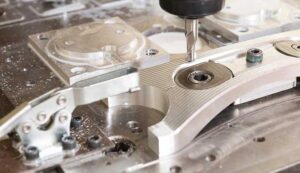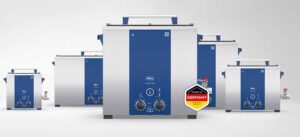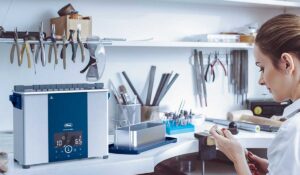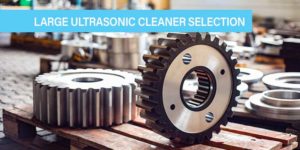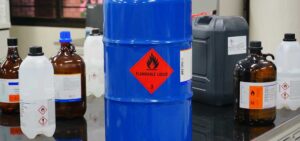Tovatech Blog
Validating Ultrasonic Cleaners in a CGMP Environment
By Rachel Kohn |
Ultrasonic cleaners play critical roles as tools to clean small parts such as pumps, valves and filters used in drug development and manufacturing. As such, ultrasonic cleaners can be validated in CGMP environments and in Title 21 of the Code of Federal Regulations as a processing tool delivering energy, called cavitation, to clean equipment. This…
How To Efficiently Clean Machined Parts
Whether you’re running a CNC shop, fabricating components for aerospace, or maintaining equipment on the production line, clean machined parts are essential for performance, durability, and downstream processes like coating or assembly.…
Ensure Quality and Consistency with Moisture Analysis for Liquids
Measuring moisture content in a liquid calls for slightly different approaches than in solids. Here are tips on how to do the job with a moisture analyzer
Choosing the Right Industrial Ultrasonic Cleaner Features and Options
Industrial ultrasonic cleaners can represent a sizeable investment. Here we define these units, what to look for when purchasing, and offer equipment options to help you make the right selection. Included are…
How Ultrasonic Cleaning Works for Industry and Labs
Ultrasonic cleaning has become an indispensable tool for industries requiring the highest standards of cleanliness, particularly in the production of machined metal parts for critical applications in pharmaceuticals, laboratories, and manufacturing. The…
Selecting a Large Ultrasonic Cleaner for Large-Scale Cleaning
For businesses requiring the cleaning of large components or high-volume batches, a large ultrasonic cleaner with a capacity exceeding 100 gallons is essential. This guide outlines the critical features to consider when…
How Moisture Analyzers Ensure Efficient and Clean Burning Wood Pellets
Use a moisture analyzer to spot-check moisture content during processing and bagging wood pellets.
Laboratory Sonicator Guide: Applications, Benefits, and Equipment Selection
An ultrasonic cleaner employed as a sonicator bath can achieve rapid sample preparation while avoiding chemical degradation of the API due to excessive heat.
Choosing the Right Lab Cold Storage: Manual vs. Auto-Defrost Units and Essential Considerations
How lab freezers and refrigerators are defrosted is an important part of the purchasing decision.
Using Ultrasonic Cleaners to Remove 3D Printed Mold Supports
3D printing, encompassing technologies like fused deposition modeling (FDM) and fused filament fabrication (FFF), has revolutionized manufacturing by significantly reducing the cost and complexity of traditional molding techniques, such as lost wax…
Using a Moisture Analyzer for Wheat Quality Control
Desk- or table-top moisture analyzers such as the Kern MLB and MRS series available from Tovatech are ideal for small-sample validation of the moisture content of grain and flour.
Why Digital Crane Scale Maintenance is Important for Optimal Performance and Safety
Digital crane scales are essential for heavy lifting and weighing operations across various industries. While built for rugged use, these precision instruments require regular maintenance to ensure accuracy and, more importantly, prevent…
How to Specify a Flammable Refrigerator
Refrigerator explosions, while thankfully rare, highlight the critical importance of proper storage for flammable materials. These incidents typically occur when volatile substances are stored in standard refrigerators, where internal electrical components can…


